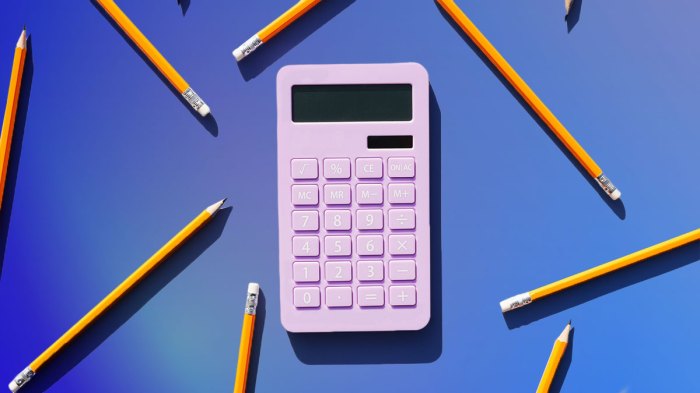Kicking off with Improving Personal Finance, get ready to level up your money game with budgeting techniques, saving strategies, and debt management. It’s time to secure that bag!
Importance of Personal Finance
Personal finance is crucial for individuals as it involves managing your money, budgeting, saving, investing, and planning for the future. It plays a significant role in achieving financial stability and security.
Benefits of Managing Personal Finances Effectively
- Financial Security: By effectively managing your personal finances, you can create a safety net for unexpected expenses or emergencies.
- Debt Management: Proper personal finance practices help in reducing and managing debt, avoiding high-interest payments, and improving credit scores.
- Long-term Financial Goals: Planning and managing your finances allow you to save and invest towards long-term goals such as buying a house, retirement, or education.
- Peace of Mind: Knowing that you have control over your finances and a plan in place can reduce stress and provide peace of mind.
Examples of Good Personal Finance Practices
- Creating a Budget: Tracking income and expenses, setting financial goals, and sticking to a budget can lead to better financial management.
- Emergency Fund: Building an emergency fund with 3-6 months’ worth of living expenses can provide a financial cushion during unforeseen circumstances.
- Investing for the Future: Putting money into retirement accounts, stocks, or other investment vehicles can help grow wealth over time.
- Paying Off Debt: Prioritizing debt repayment, starting with high-interest debt, can free up more money for savings and investments.
Budgeting Techniques: Improving Personal Finance

Budgeting is a key component of personal finance that helps individuals manage their money effectively. By creating a budget, you can track your income and expenses, prioritize your spending, and work towards your financial goals. Here, we will discuss various techniques for creating and sticking to a budget.
Different Methods for Creating a Personal Budget
- Traditional Pen-and-Paper Budgeting: This method involves writing down your income and expenses manually. It allows for a hands-on approach and can help you visualize your financial situation.
- Digital Budgeting Apps: With the advancements in technology, there are numerous budgeting apps available that can help you track your spending, set financial goals, and receive alerts for upcoming bills. These apps provide convenience and real-time updates on your finances.
Tips on How to Stick to a Budget Effectively
- Set Realistic Goals: Make sure your financial goals are achievable and align with your income and expenses.
- Track Your Spending: Regularly monitor your expenses to identify areas where you can cut back and save more.
- Automate Savings: Set up automatic transfers to your savings account to ensure you save a portion of your income each month.
- Reward Yourself: Allow for small rewards or treats within your budget to stay motivated and avoid feeling deprived.
Saving Strategies

Saving money is an essential part of personal finance, no matter what your income level is. It’s important to have a plan in place to help you reach your financial goals. Here are some saving strategies to consider:
Different Income Levels
- For Low Income: Start by setting aside a small percentage of your income each month, even if it’s just a few dollars. Every little bit counts, and it’s important to get into the habit of saving.
- For Middle Income: Consider automating your savings by setting up automatic transfers from your checking account to your savings account. This way, you won’t even have to think about saving – it will happen automatically.
- For High Income: Maximize your retirement contributions and consider investing in low-cost index funds or other investment vehicles to grow your wealth over time.
Automating Savings
- Set up automatic transfers from your checking account to your savings account on a regular basis, whether it’s weekly, bi-weekly, or monthly. This way, you’ll be consistently saving without even realizing it.
- Consider using apps or online tools that round up your purchases to the nearest dollar and deposit the spare change into your savings account. It’s a simple way to save without even thinking about it.
- Take advantage of employer-sponsored retirement plans like 401(k)s or IRAs, which can automatically deduct contributions from your paycheck before you even see the money.
Emergency Funds
- Emergency funds are essential for unexpected expenses like medical bills, car repairs, or job loss. Aim to save at least 3-6 months’ worth of living expenses in an easily accessible savings account.
- Consider opening a high-yield savings account for your emergency fund to earn a higher interest rate than a traditional savings account.
- Remember, the goal of an emergency fund is to provide peace of mind and financial security in times of need, so make sure to prioritize building one up as soon as possible.
Debt Management
Dealing with debt can be a major challenge for many individuals, impacting their financial well-being and future goals. It is crucial to understand the different types of debt, prioritize paying them off, and implement effective strategies to reduce and manage debt responsibly.
Types of Debt and Prioritizing Payments
Before diving into debt repayment, it is essential to distinguish between various types of debt, such as credit card debt, student loans, mortgages, and personal loans. Each type of debt may come with different interest rates and repayment terms, influencing how you prioritize paying them off.
- High-Interest Debt: Start by targeting debts with the highest interest rates, such as credit card balances, as they can quickly accumulate interest and become overwhelming.
- Secured Debt: Prioritize payments on secured debts, like mortgages or auto loans, to avoid risking the loss of assets.
- Student Loans: Consider your student loan terms and explore repayment options like income-driven plans or refinancing to manage these debts effectively.
Strategies for Reducing and Managing Debt, Improving Personal Finance
Reducing debt requires a proactive approach and disciplined financial habits. Here are some strategies to help you tackle debt effectively:
- Create a Budget: Track your expenses and allocate a portion of your income towards debt repayment each month.
- Snowball or Avalanche Method: Choose a debt repayment strategy that works best for you, whether it’s focusing on the smallest balance first (snowball) or highest interest rate (avalanche).
- Negotiate with Creditors: Reach out to creditors to discuss repayment options, such as lower interest rates or extended payment terms, to make debt more manageable.
Impact of Debt on Personal Finances and Avoiding Debt Traps
Debt can have a significant impact on personal finances, affecting your credit score, borrowing capacity, and overall financial stability. To avoid falling into a debt trap, consider the following:
- Monitor Your Credit: Regularly check your credit report for any errors or signs of identity theft that could impact your financial health.
- Build an Emergency Fund: Having savings set aside can help you avoid relying on credit cards or loans for unexpected expenses.
- Avoid Overspending: Practice mindful spending habits and avoid accumulating unnecessary debt by living within your means.
